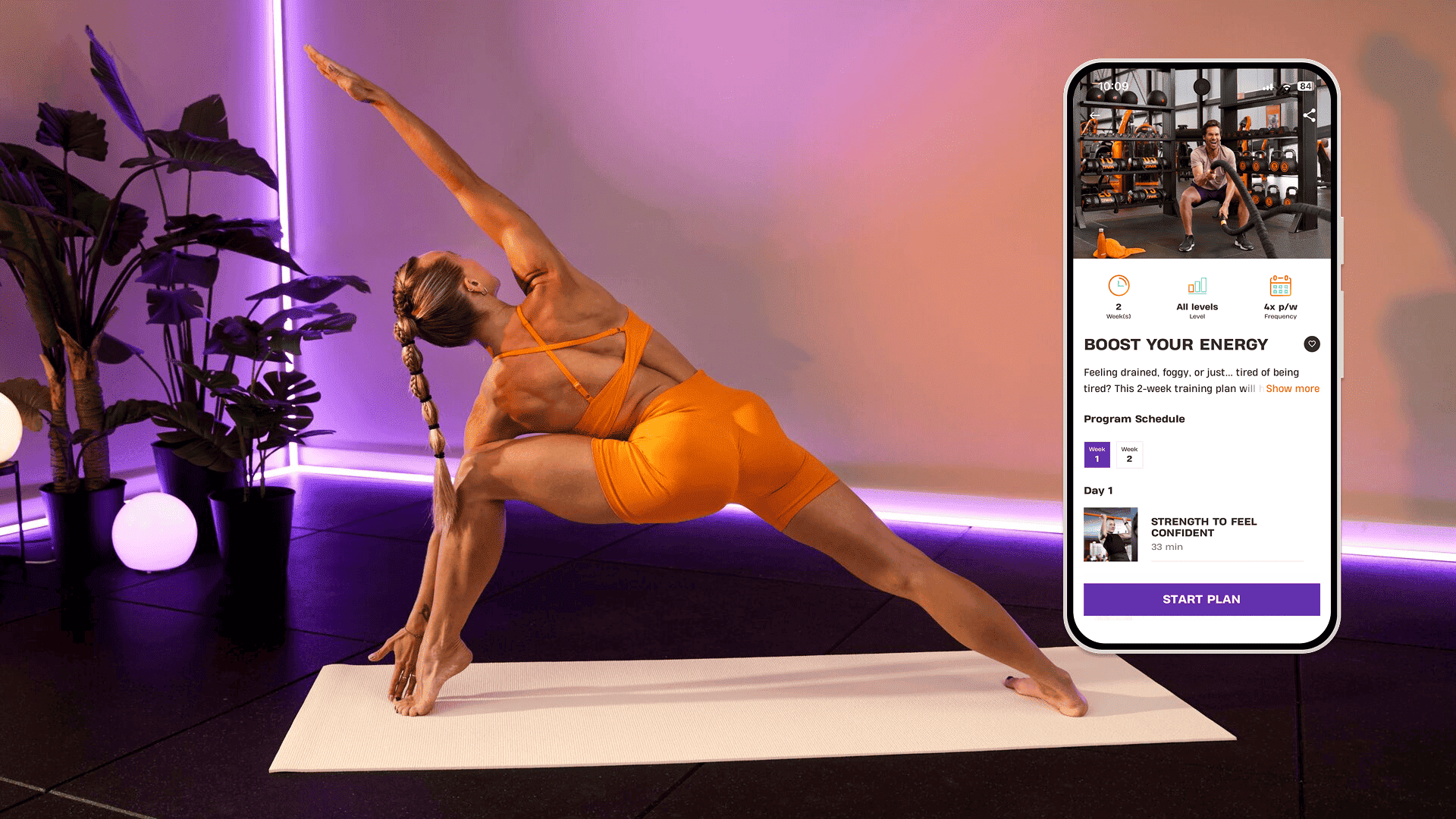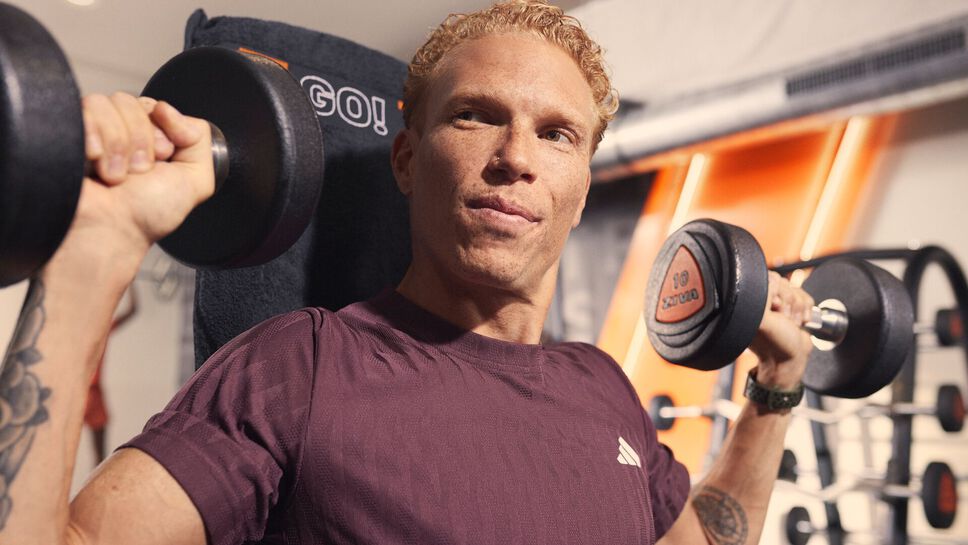Feeling tired all day, even after a full night of sleep, is more common than you think. Energy dips, afternoon slumps, and constant fatigue often come from everyday habits you might not even realise are draining your energy.
What you eat, when you move, how much water you drink, and how often you take a proper break all shape how you feel during the day. The good news is that small changes here can have an immediate effect.
We’ve pulled together five research-backed ways to boost your energy naturally, with tips you can put into practice right now.

1. Prioritise your sleep (and at consistent times)
Sleep is one of the strongest levers you have for energy. Experts recommend at least seven hours a night for adults. Getting less makes you more likely to feel tired during the day and increases long-term health risks.
But duration isn’t the full story. A large study found that people with regular sleep and wake times had better health outcomes and lived longer than those with irregular schedules. In other words, your body runs best on rhythm.
Light plays a role here too. Bright light in the morning helps set your body clock for the day, improving alertness and sleep quality at night. In contrast, bright screens or strong light in the evening can delay sleep and reduce recovery.
How to improve your sleep
- Fix a wake-up time and keep it the same every day.
- Allow 7.5–8.5 hours in bed so you net at least seven hours of sleep.
- Spend 10–30 minutes outside in the morning light to anchor your body clock.
- Create a 60–90 minute wind-down: dim lights, do quiet tasks, stretch, or read.
- Cut caffeine at least eight hours before bed.
- Park screens an hour before bedtime.

2. Move your body (a little or a lot)
Even small amounts of movement can reset your energy. A quick walk, some stretching, or a short workout changes how your brain and body feel almost immediately. Research shows that both regular exercise and single bouts of activity reduce fatigue and boost energy levels.
A review of 80+ studies showed that people who exercised regularly reported less fatigue and more vitality compared to those who didn’t. Moderate-intensity movement was especially effective at raising energy.
And it doesn’t take much. Benefits have been seen with sessions as short as 20 minutes.
How to boost your energy with movement
- Take a brisk walk on your lunch break to refresh body and mind.
- Swap short car rides for cycling or walking when possible.
- Do a quick 10–15 minute stretch or video workout between tasks.
- Join a group class for a fun energy boost with others.
- Use the stairs instead of the elevator for an easy energy lift.
The World Health Organization’s recommends 150 minutes of moderate activity per week, plus strength training twice a week. But remember, every bit of movement in between still counts.

3. Fuel and hydrate for energy throughout the day
What you eat and drink has a big impact on your energy. Heavy meals full of fast-digesting carbs can leave you crashing afterwards, while meals with slower-digesting foods help keep your energy more even. Adding some protein and fiber to each meal also helps prevent big spikes and energy dips.
Hydration is also very important. Even mild dehydration can worsen fatigue and mood, so try to stay ahead of thirst. Water, tea, and foods with high water content all contribute, and spreading intake across the day tends to work best.
How to eat and hydrate for lasting energy
- Choose low-GI carbs (like oats, lentils, apples) to reduce post-meal crashes.
- Add protein and fiber to meals to slow digestion and keep energy more stable.
- Swap high-sugar drinks and snacks for fruit, nuts, or yogurt to avoid sharp spikes.
- Go for smaller or lighter lunches if big midday meals leave you tired.
- Limit refined carbs (white bread, pastries, sugary cereals) that can cause dips later.
If you’re constantly tired, ask your doctor to check iron and B12 levels. Low ferritin (especially in menstruating people) and B12 deficiency are both fixable causes of fatigue.

4. Recharge during the day
Pushing through without rest might feel productive, but research shows your brain and body perform better when you build in recovery. In fact, micro-breaks (short pauses under 10 minutes) reduce fatigue and increase energy during the day. Even very short pauses, like stretching or looking away from your screen, give your mental resources a reset.
Naps can also be powerful, but timing and duration are key. Studies show that a 10–20 minute nap in the early afternoon can improve alertness, mood, and performance soon after waking.
How to recharge during the day
- Take a 2–5 minute pause every 60–90 minutes of focused work to stretch, move, or step outside.
- Use micro-breaks (under 10 minutes) for small resets: stand, get a glass of water, or check in with a colleague.
- If you need a nap, aim for 10–20 minutes between 1–3 pm.
- Set an alarm or timer to avoid drifting into longer naps that can leave you groggy.

5. Lower stress with quick resets
Stress quietly eats away at your energy. When your body is stuck in “high alert” mode, it uses up more resources than it restores leaving you drained. The good news is that even short practices can lower your stress levels and give you more usable energy.
Mindfulness programs have been shown to reduce fatigue in groups as different as office workers and cancer survivors. In one trial, just five minutes of slow, controlled breathing (especially with longer exhales) improved mood more than a mindfulness control.
And if you’d rather step outside than sit still, spending about 120 minutes a week in green spaces like parks, woods, or beaches is linked to better health and well-being, no matter how you split that time up.
How to lower stress and boost energy
- Try 5 minutes of slow breathing, focusing on longer exhales.
- Step outside for a short walk, even just around the block.
- Build in nature time. Aim for 2 hours a week outdoors.
- Do a 1-minute body scan: close your eyes, move attention from head to toes, and notice how each part feels before moving on to your next task.

Boost your energy with the Basic-Fit app
If you want a simple way to put these tips into practice, the Boost Your Energy plan in the Basic-Fit app is made for you. We've designed an easy-to-follow program that will help you feel more energized in your everyday life.
What the plan includes:
- 4 short, feel-good workouts a week (strength, uplifting cardio, mobility) to lift your energy and mood.
- 1 weekly habit booste (easy microhabits)
- Bonus breathing and recovery routines for when you need a quick reset.
- 1 weekly educational blog with practical tips you can use straight away.
Key takeaways
Most dips in energy can be improved with small, daily changes: moving your body, eating balanced meals, staying hydrated, taking short breaks, and managing stress. These habits work together to help you feel more awake and resilient throughout the day.
But if fatigue is new, severe, or lasting more than a few weeks, it’s worth checking in with your doctor. Sometimes issues like iron or B12 deficiency, thyroid problems, or sleep apnea can be the hidden cause — and they’re treatable once identified.




